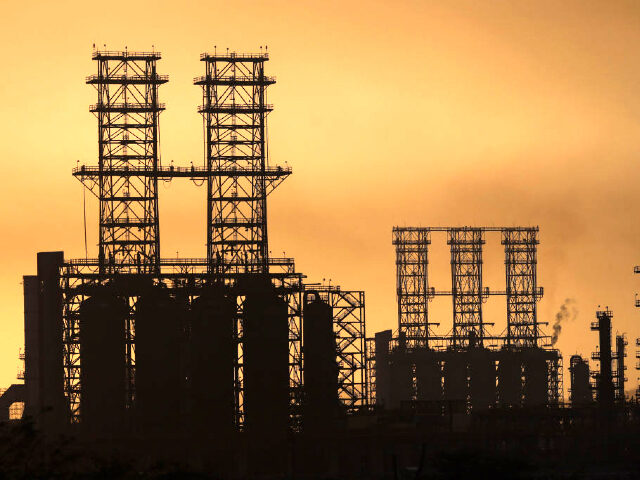The Venezuelan socialist regime’s Oil Minister Tareck El Aissami announced on Monday that Igor Sechin, the head of the Russian state-oil corporation Rosneft, agreed to aid in boosting Venezuela’s crude oil production and advancing new “business opportunities” between both countries.
El Aissami said he met with Sechin in Caracas this week.
“We have held a working meeting with the CEO of the Russian company Rosneft, our good friend Igor Sechin, and together with the President of PDVSA Rafael Tellechea, ” El Aissami revealed on Twitter. “We evaluated the outlook for the world oil market and the common challenges of our companies.
Hemos sostenido una reunión de trabajo con el director ejecutivo de la empresa rusa Rosneft, el buen amigo IGOR SECHIN, y junto al presidente de PDVSA @TellecheaRuiz evaluamos las perspectivas del mercado petrolero mundial y los desafíos comunes de nuestras empresas. pic.twitter.com/idPcaXfMdL
— Tareck El Aissami (@TareckPSUV) March 6, 2023
In an official statement from the Venezuelan state-owned PDVSA oil company, El Aissami emphasized that energy cooperation with Russia is “broad and deep.”
“We will continue complementing our oil and gas potential. We have defined a work agenda to increase crude oil production and advance in new business opportunities,” El Aissami added.
El Aissami is one of the Venezuelan socialist regime’s most powerful officials, long believed to maintain close ties with the terrorist organization Hezbollah. U.S. authorities have accused El Aisammi of being a drug kingpin, placing a $10 million bounty for any information that can lead to his arrest and/or conviction.
Sechin arrived in Caracas to participate in the socialist regime’s commemoration of the 10th anniversary of Hugo Chávez’s death on Sunday. One day before his arrival in Venezuela, Sechin visited Havana to meet with the communist Castro regime’s figurehead President Miguel Díaz-Canel to discuss “mutual collaboration” with Cuba, another key ally of Russia in Latin America. Cuba is currently suffering from a severe fuel shortage worsened by poor government administration of infrastructure and routine power outages that require diesel-run generators to keep homes lit.
In 2020, Rosneft ceased its operations in Venezuela in response to U.S. oil sanctions imposed on the Maduro regime under former President Donald Trump, selling its assets in Venezuela to an unnamed company also owned by the Russian government.
In January, under its recently appointed new president Rafael Tellechea, cash-starved PDVSA announced that it had frozen most of its oil export contracts and placed them under review to avoid payment defaults.
Currently, Russian companies operate in Venezuela through five joint ventures with PDVSA: Petromonagas, Petromiranda, Petrovictoria, Boquerón, and Perijá. Combined, they produce around 80,000 barrels of oil per day.
Much like China, Iran, and Turkey, Russia, a key ideological ally of the Venezuelan socialist regime, has continued to provide aid to the ailing regime of Nicolás Maduro following the functional collapse of “Bolivarian Socialism,” in the late 2010s.
Venezuela has been struggling to raise its oil production after plummeting to historic lows in 2020 due to years of socialist mismanagement. The socialist regime has received aid from Iran to repair its ruined oil refineries. Recent reports indicate that Iran will begin to revamp the nation’s largest refinery complex, the Paraguaná Refining Center, in the coming months.
The Maduro regime managed to raise its oil production back to 732,000 barrels per day by January 2023 — an amount that falls short from the 2 million barrels per day Maduro had promised OPEC it would produce by 2022.
Last December, both Russia and Venezuela signed a new set of “strategic cooperation” agreements ranging from commercial, military, and energy, among others. The encounter also served to discuss Venezuela’s outstanding debts to Russia, whose amounts have not been publicly disclosed by the Maduro regime.
By 2019, estimates indicated that the Russian government and Rosneft had provided at least $17 billion in loans and credit lines to the Venezuelan socialist regime since 2006.
Both countries vowed to deepen their “powerful military cooperation” in February 2022, days before Russia began its invasion of Ukraine.
Christian K. Caruzo is a Venezuelan writer and documents life under socialism. You can follow him on Twitter here.

COMMENTS
Please let us know if you're having issues with commenting.